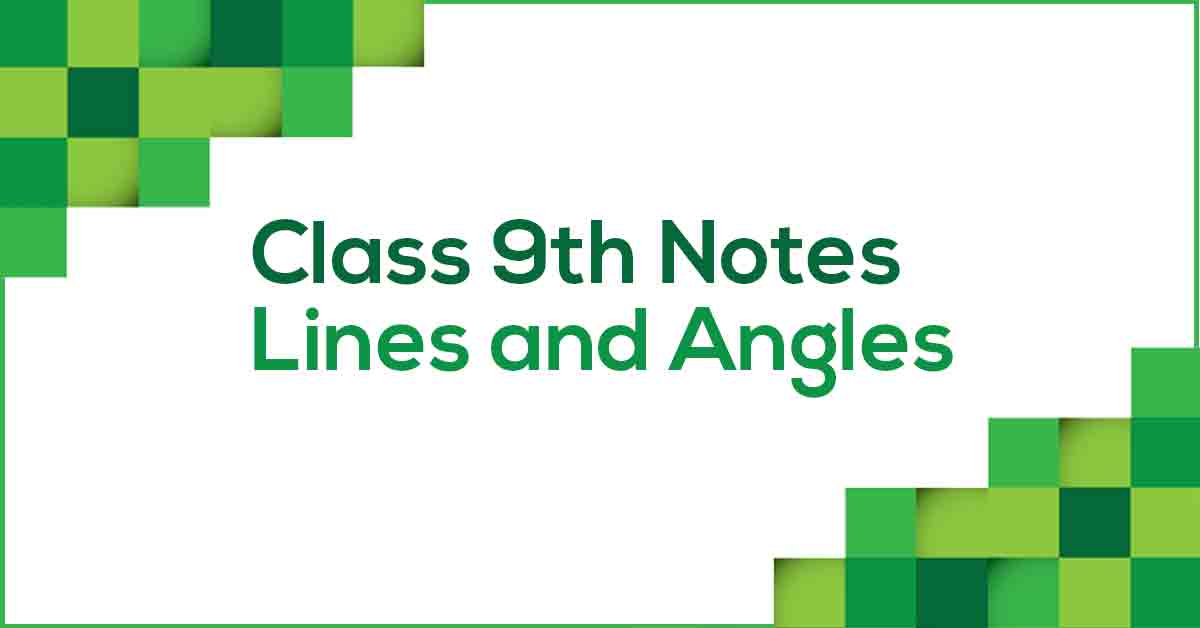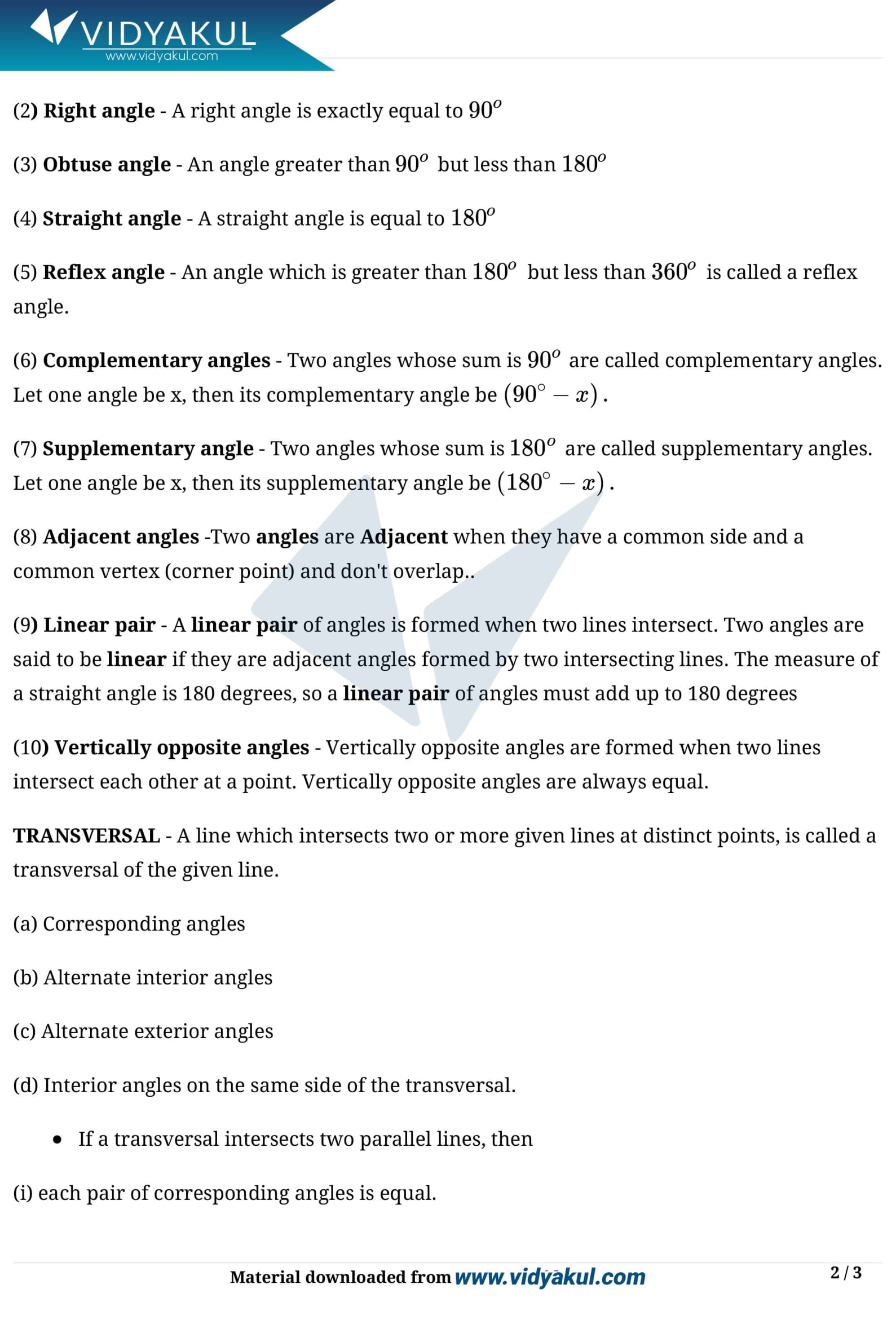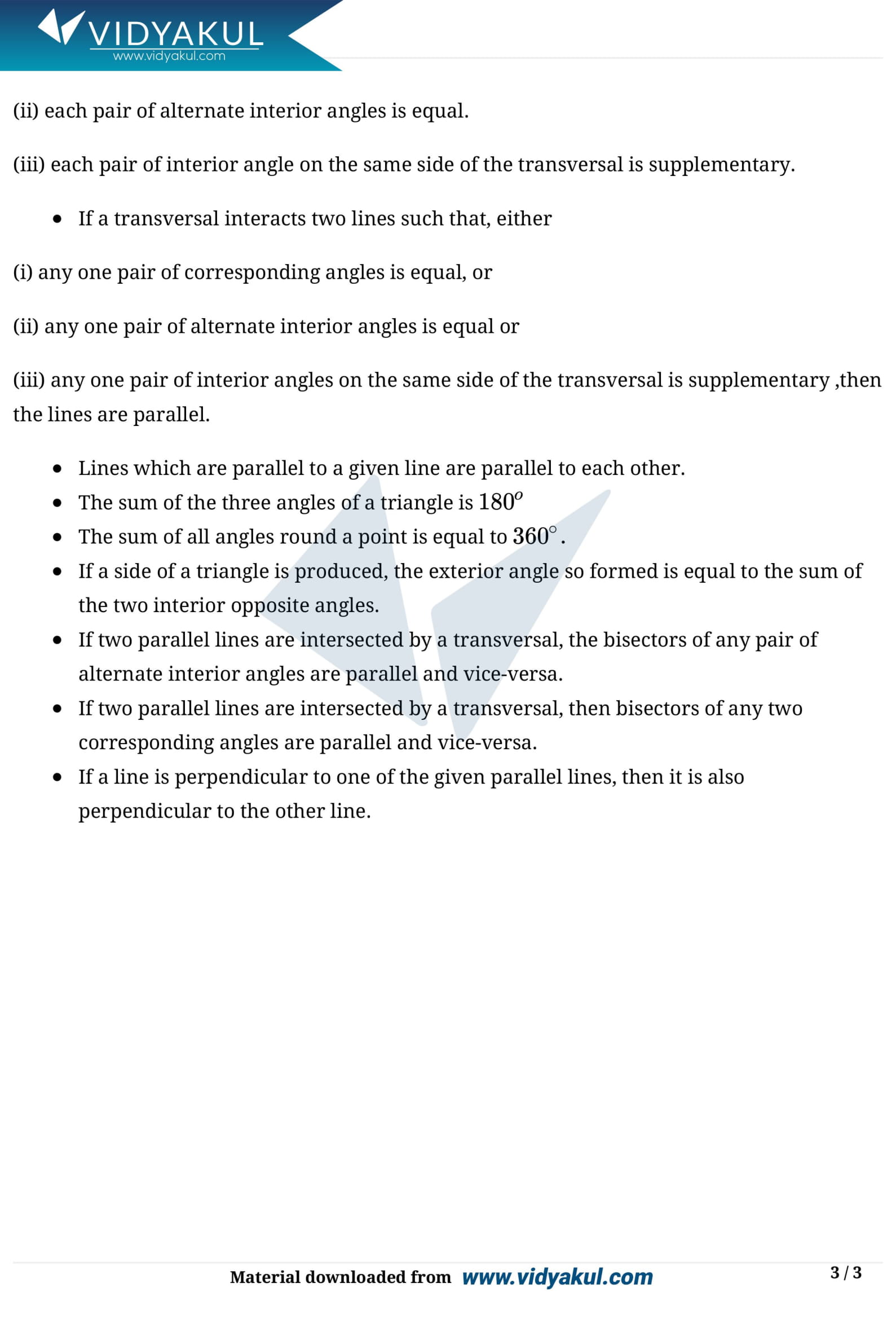Lines and Angles Class 9 Notes

Chapter 6 Lines and Angles
Lines and Angles is a valuable resource to help students do well on exams. In this article, we have provided detailed NCERT notes to class 9 math chapter 6 notes that require logical reasoning and understanding to solve the problem.
Vidyakul provides students with over 2,600 exercises. With these 10 books that students can refer to. In this article, students will find sample documents, mock exams, questions from previous years, and links to NCERT notes. Learn more about NCERT notes for 9th Grade Math Chapter 6.
MATHEMATICS NOTES CLASS 9th CH-6
Points to Remember
While studying, the important points to remember from Class 9 Science are as follows:
An angle is formed by intersecting two non-collinear rays with a common starting point.
A right angle is defined as an angle with a measurement of 90°.
An acute angle is one with a measure of less than 90°.
An obtuse angle has a measure greater than 90° but less than 180°.
A straight angle is one with a measurement of 180°.
If the sum of two angles is 180°180°, they are supplementary.
If the sum of two angles is 90°90°, they are complementary.
A reflex angle measures more than 180°.
If the non-common arms of two adjacent angles are two opposite rays, they are said to form a linear pair of angles.
When two lines intersect, the angles that are vertically opposite are equal.
Topics and Sub-topics
When solving NCERT problems, students should make sure they are trying to solve the problem on their own. If you can't solve your problem, just refer to these NCERT notes. This will improve your problem-solving skills. Also, see how experts determine the steps to follow to arrive at an answer.
Students can refer to the section we will be studying in this chapter:
An angle is formed by intersecting two non-collinear rays with a common starting point.
A right angle is defined as an angle with a measurement of 90°.
An acute angle is one with a measure of less than 90°.
An obtuse angle has a measure greater than 90° but less than 180°.
A straight angle is one with a measurement of 180°.
If the sum of two angles is 180°180°, they are supplementary.
If the sum of two angles is 90°90°, they are complementary.
A reflex angle measures more than 180°.
If the non-common arms of two adjacent angles are two opposite rays, they are said to form a linear pair of angles.
When two lines intersect, the angles that are vertically opposite are equal.
Learn about various lines, angles and their relationship in Lines and Angles Class 9 Notes pdf.
Download this solution for FREE Download this PDF






